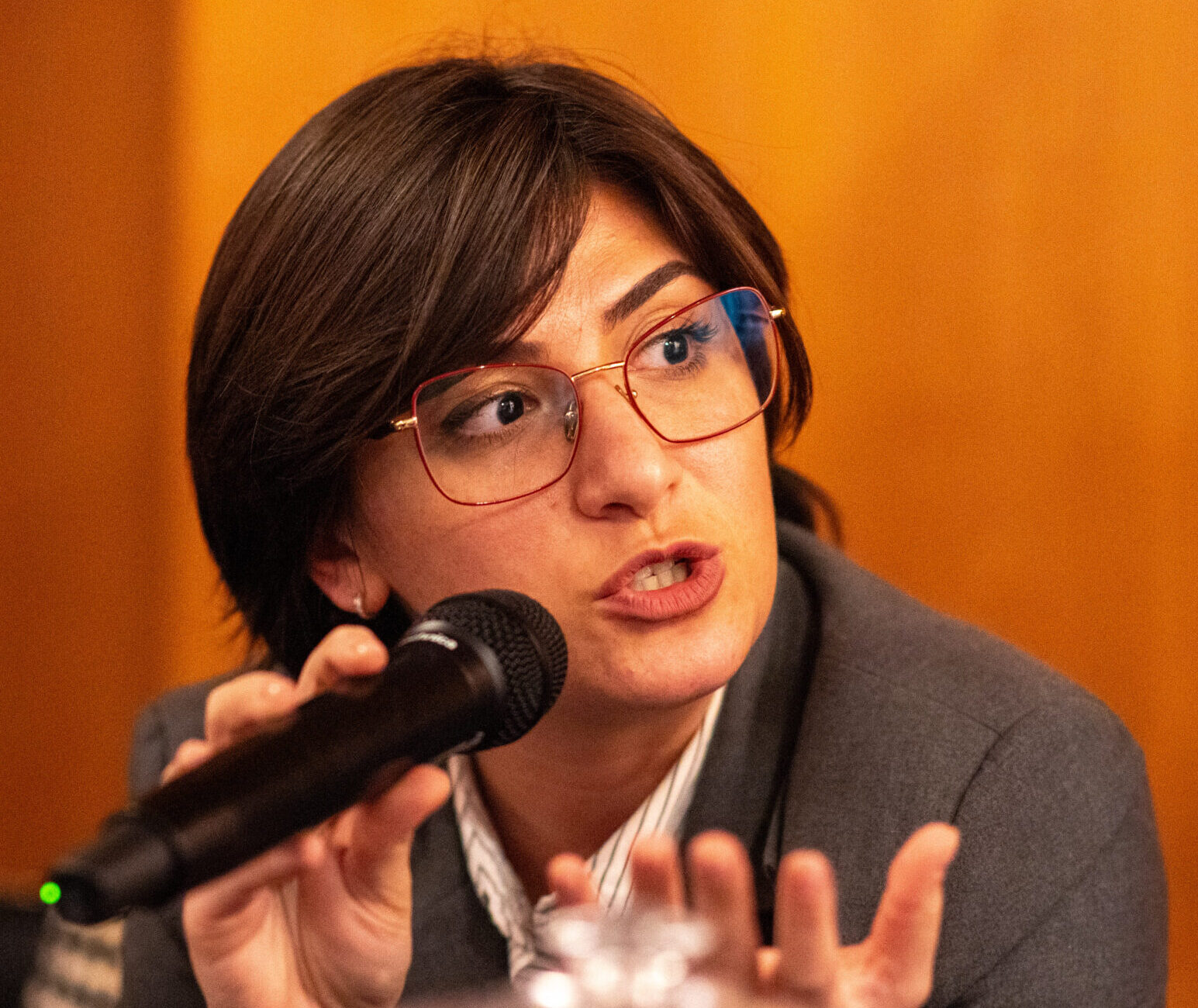
10 jan Tamar Oniani, Georgien: ”Our responsibility is to give hope”
Tamar Oniani är chef för människorättsavdelningen på den georgiska organisationen Georgian Young Lawyers Association (GYLA) som arbetar med att försvara rättstatliga principer, övervaka val och anmäla valfusk och på en rad olika sätt strider för ett demokratiskt Georgien där rättsstatlighet och mänskliga rättigheter respekteras. (Intervju på engelska)
Ms. Oniani, you witness first hand the developments in Georgia. Since the general elections in October 2024 and the introduction of new “Russian styled” laws of labeling organisations as “foreign agents” – how do you view the current situation in your country?
Even since 2023, Georgia in general has steadily been transformed into a semi-consolidated authoritarian regime. The government, headed by the Georgian Dream party, has rapidly dismantled the remaining space for dissent, and now seeks to extend its rule indefinitely, and acts in complete disregard of Georgia’s constitutionally enshrined EU-NATO foreign policy. This transformation of the Georgian political landscape and society has been forced upon Georgian citizens trough the abuse of legislative power and a systematic repression of dissenting voices. Today (February 2025, editors note), the Georgian Dream government has abandoned all respect for fundamental freedoms.
The regime has responded with physical violence and systemic torture against hundreds of protesters after the flawed elections. Security forces have employed excessive force and used unidentified chemical agents against peaceful protesters, chemicals that have caused severe, long-term health consequences for the victims. These are facts, documented as findings by the International Rehabilitation Council for Torture Victims, IRCT, as well as by the World organisation against torture, OMCT, findings that were later endorsed by six UN Special Rapporteurs.
In particular, the freedom of assembly has been squashed. This right was actively exercised by citizens demonstrating and protesting in huge numbers against the government, following the elections. In its attempts to suppress any opposition, the ruling government has accelerated the adoption of repressive laws, and carried out purges of dissenting voices in the public sector. Since 2023 about 1,600 demonstrators has been arbitrarily detained on administrative charges, and more than 60 individuals face criminal charges without guarantees of a fair trial. This increase in repression coincided with the government’s decision in November 2024 to halt the negotiations for EU accession.
So, all in all, the scale and severity of these violations amount to a full-fledged human rights crisis in Georgia.
What are the current priorities for you, and how do GYLA continue working under current circumstances?
Our priority right now is to gather evidence of mass human rights violations in Georgia. GYLA coordinates a legal aid network that provides free legal assistance to detainees facing so-called administrative charges. At the same time, we monitor the criminal cases of those who have been arrested after the pro-democratic protests recently. In addition to this, we coordinate a joint effort among Georgian NGOs to document human rights violations and to interview victims of abuses and violations. We will soon publish a comprehensive assessment on this troubling topic.
What are your hopes for the future?
It is difficult to speak of hope in the current context of Georgia. But despite the alarming decline in democratic standards, we remain committed to defend fundamental freedoms and strengthening the resilience of civil society. Our responsibility now as human rights defenders and citizens of Georgia is to give hope to a society that seeks justice – but will not get that justice, neither from the courts nor any investigative authorities or the government. We young lawyers must stand with the people in their pursuit of justice and rights. That is why GYLA works around the clock right now to fulfill our role as watchdog.
In what ways can you benefit from cooperating with Östgruppen?
We are happy to cooperate with Östgruppen, since this partnership will significantly strengthen our human rights advocacy and expand our international engagement. The collaboration provides valuable opportunities for mutual learning and support in achieving our shared goals.



